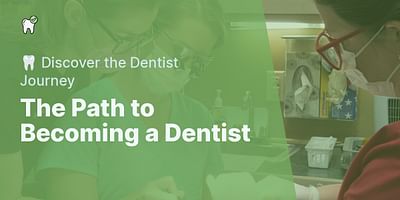Dr. Michael Chen is a dental researcher with a PhD in Oral Biology. He has published numerous papers on the microbiology of dental caries and is a sought-after speaker at dental conferences. In his free time, he enjoys playing tennis and reading science fiction.
As a dental hygienist, you play a crucial role in maintaining oral health and preventing dental problems. Many people are interested in pursuing a career in dental hygiene, but they often have questions about the education and training required. In this article, I will provide you with a comprehensive guide on what education is needed to become a dental hygienist and how long it takes.
Education Requirements
To become a dental hygienist, you need to complete a dental hygiene program from an accredited institution. These programs are typically offered at community colleges, technical schools, or universities. The specific requirements may vary depending on the institution, but most programs require a high school diploma or equivalent for admission.
During your dental hygiene program, you will learn about various topics related to oral health, including anatomy, physiology, radiography, periodontology, and dental materials. You will also gain hands-on experience through clinical rotations, where you will work under the supervision of experienced dental hygienists.
Duration of the Program
The duration of a dental hygiene program can vary depending on the institution and whether you choose to pursue a certificate, associate degree, or bachelor's degree. On average, certificate and associate degree programs take about two to three years to complete, while bachelor's degree programs typically take four years.
If you already have a bachelor's degree in another field, you may be eligible for an accelerated program that allows you to complete your dental hygiene education in a shorter timeframe. These programs are designed for individuals who have already completed general education requirements in their previous degree.
Additional Requirements
In addition to completing a dental hygiene program, you will also need to fulfill certain licensing requirements to practice as a dental hygienist. These requirements vary by state, so it's important to research the specific regulations in your area.
Most states require dental hygienists to pass a written and clinical examination to obtain their license. The written examination typically tests your knowledge of dental hygiene principles and practices, while the clinical examination assesses your ability to perform various dental hygiene procedures.
Conclusion
Becoming a dental hygienist requires completing a dental hygiene program from an accredited institution. The duration of the program can range from two to four years, depending on the type of degree you pursue. Additionally, you will need to meet the licensing requirements of your state to practice as a dental hygienist.
If you are passionate about oral health and enjoy working with people, a career as a dental hygienist may be a great fit for you. With the right education and training, you can make a positive impact on the oral health of individuals and communities.















